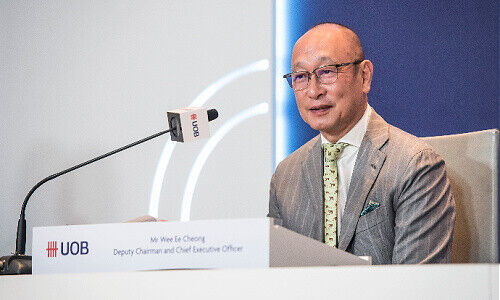UOB Wealth Management Hits Q4 Slowdown
Singapore bank UOB reported Wednesday solid overall earnings growth, but that came despite a fourth quarter hiccup to its wealth management fees.
Like its rival DBS, UOB pointed to weaker market sentiment in the fourth quarter as weighing on trading and investment returns; it noted the quarter is also seasonally slower for wealth management. UOB said its fourth-quarter net fee and commission income was S$589 million ($437.77 million), generally stable compared with the third quarter, as an increase in credit card and loan-related fees were offset by declines in wealth fees.
Net new money grows
For the full year, UOB said its assessed assets under management (AUM) grew by 4 percent from 2020 to a record S$139 billion, with wealth management fees growing by double-digits to a record as investor confidence returned and sales grew across most investment products.
Lee Wai Fai, UOB’s group chief financial officer, said the net new money on the consumer side was likely a «few billion.» That came even as UOB’s current account savings account, or CASA, deposits grew and the CASA ratio rose to a new high in the fourth quarter.
Wealth vs deposits
«We always had this debate whether wealth will drag deposits, whether it will cannibalize deposits, and actually we have seen over the last few years that it doesn’t. People have many secret reserves,» Lee said at a press conference following the release of the earnings report. «Once they're positive on the sentiment, the money will come back, especially in the higher private banking space.»
For which markets UOB is targeting, particularly once it completes its acquisition of Citi’s consumer business in four Southeast Asian markets, Lee said he expected Malaysia and Thailand would get most of the attention as they’ve driven most of the activity so far.
But Lee added that Indonesia and Vietnam have long-term potential due to their large populations.
Correction: An earlier version of this article incorrectly stated the name of the speaker at UOB's press conference.



























